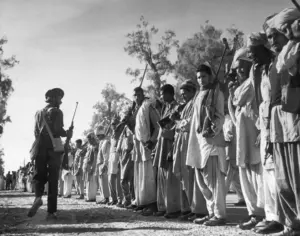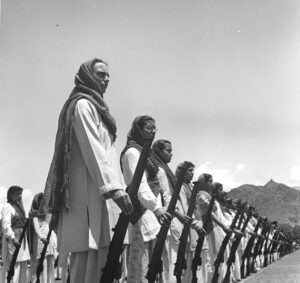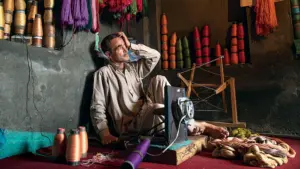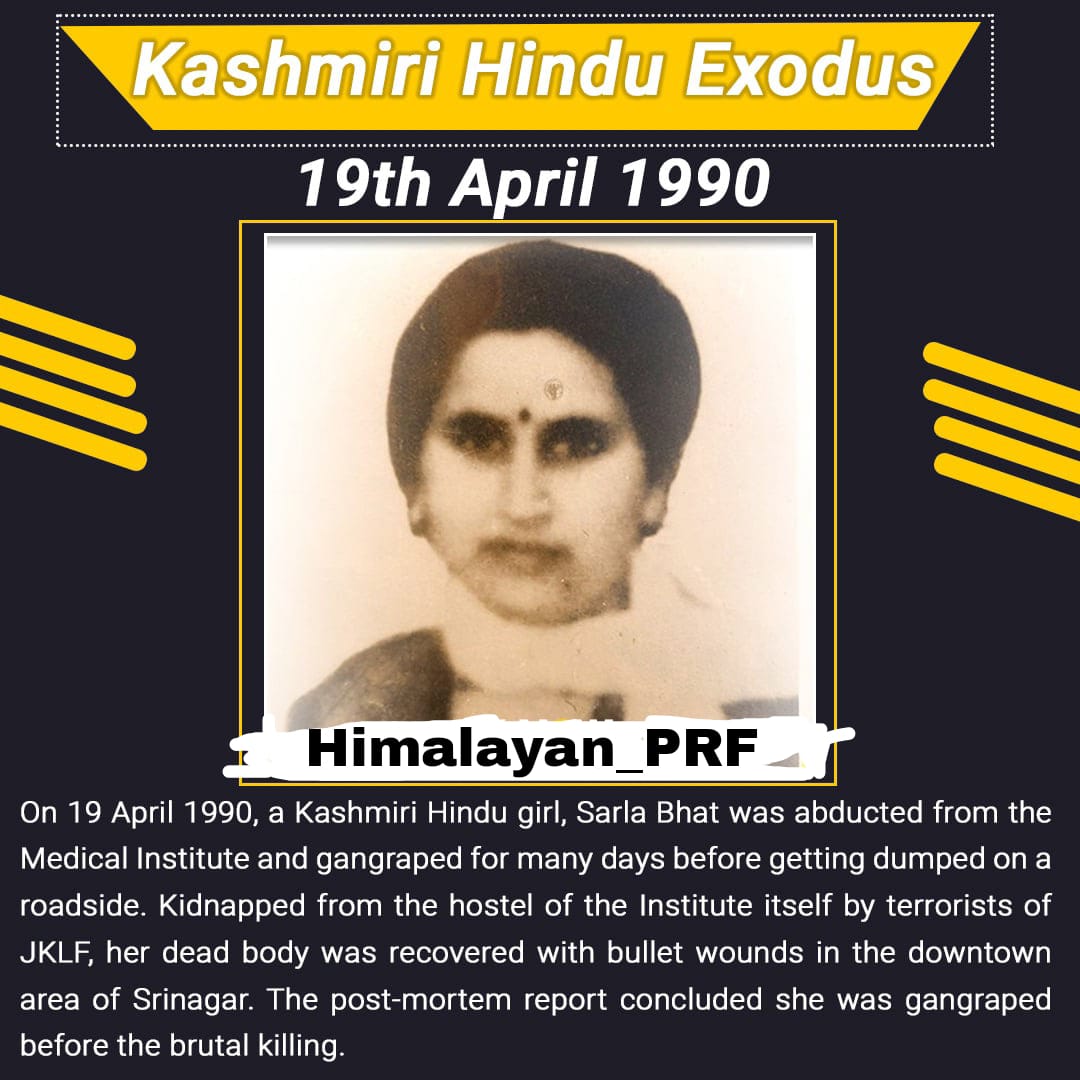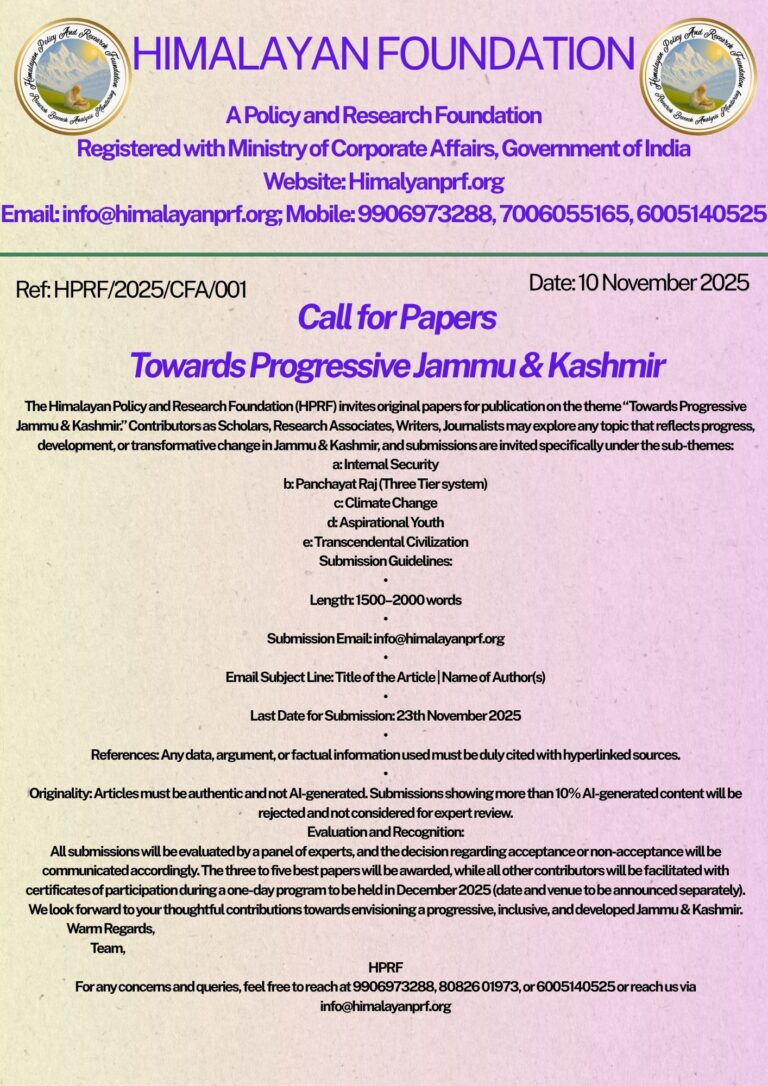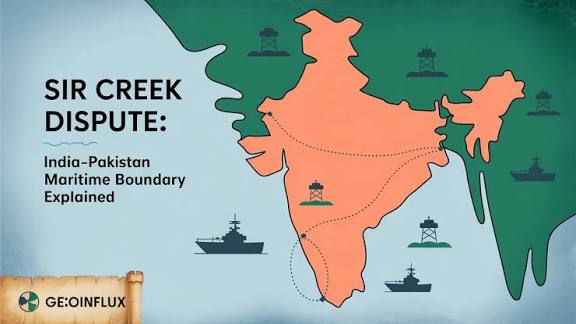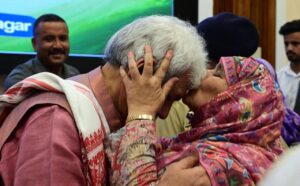Written BY: Peerzada Muneer
In the turbulent spring of 1990, Kashmir was gripped by violence, uncertainty, and a deepening communal divide. The early months of that year saw a rapid escalation in armed insurgency, mass intimidation, and targeted killings—forcing thousands of Kashmiri Pandits to flee their ancestral homes. Amid this maelstrom lived Sarla Bhat, a 27-year-old Kashmiri Pandit nurse from Heera Mohala Janglat Mandi Anantnag, working at the Sher-i-Kashmir Institute of Medical Sciences (SKIMS), Soura, Srinagar. Dedicated to her work, she served patients regardless of religion or political affiliation, embodying the ethics of her profession even as the Valley descended into chaos.
As per Police reports, Sarla was known as a young, independent woman who refused to bow to terrorist diktats ordering Pandits to quit their jobs and leave the Valley. Her open defiance and refusal to abandon her duties made her a visible target for terrorist intimidation. She also openly challenged the authority of JKLF terrorists, an act of courage that, according to later police accounts, directly led to her gruesome killing.
On April 18, 1990, Sarla was abducted from Habba Khatoon Hostel of SKIMS, Soura, by terrorists affiliated with the Jammu and Kashmir Liberation Front (JKLF). This kidnapping was part of a broader campaign of terror directed at Kashmiri Pandit civilians—particularly those seen as connected to the state or as potential informers. The Asia Watch & Physicians for Human Rights investigation records that Sarla was accused by her captors of providing information to security forces about wounded terrorists being treated at the hospital—allegations often used as pretexts for brutal reprisals.
The next morning, April 19, 1990, her bullet-ridden body was found lying in the thoroughfare at Umar Colony, Mallabagh, Soura. Forensic examination confirmed she had been raped before being shot dead. A handwritten note left nearby claimed JKLF responsibility, falsely labeling her a police informant. FIR No. 56/1990 was registered at Police Station Nigeen, Srinagar.
Her killing was emblematic of the systematic violence unleashed against Kashmiri Pandits during the insurgency, aimed at instilling fear and forcing the community into exile. Even in death, intimidation continued—locals were warned against attending her cremation. Soon afterward, her family home in Anantnag was set ablaze, compelling her relatives to flee to refugee camps in Jammu.
This pattern of targeted violence was not isolated to Sarla’s case. One of the most notorious perpetrators of the time was Farooq Ahmed Dar, infamously known as Bitta Karate, a JKLF terrorist who publicly admitted to killing dozens of Kashmiri Pandits in cold blood. His chilling confessions, aired on national television, sent shockwaves through the Valley and beyond, eroding the very ethos of Kashmiri society that once prided itself on syncretic harmony. For the saner sections of Kashmiri society, these acts were not only criminal atrocities but also moral wounds—belittling a cultural heritage that had long been built on coexistence and mutual respect. The memory of such misadventures continues to weigh heavily on those who view them as a betrayal of the Valley’s shared values, leaving behind a legacy of grief, mistrust, and unhealed communal trauma.
For decades, the case saw no real progress. The initial investigation by the local police failed to identify the actual perpetrators, a reflection of both the breakdown of law and order in 1990 and the pervasive climate of fear. The lack of prosecution left the crime in the long shadow of impunity.
In a renewed push for justice, the State Investigation Agency (SIA) of Jammu & Kashmir took over the case last year. As part of its ongoing investigation, the SIA recently launched coordinated searches at eight locations across District Srinagar, recovering incriminating evidence that may help uncover the entire conspiracy behind Sarla’s killing. Authorities have expressed that this is a “typical case of justice delayed, but not denied,” The efforts depict unwavering commitment of JK- SIA to unearth actual perpetrators of heinous crimes as a resolve of LG administration.
Sarla’s murder was one of the earliest documented cases of rape and killing by terrorist groups during the Kashmir insurgency, as recognized by Asia Watch/PHR. It shattered the perception that terrorist violence was directed only at state forces and exposed the vulnerability of professional women—nurses, teachers, clerks—caught between warring sides. It underscored the use of sexual violence as a deliberate weapon in internal conflict, violating both Indian law and Common Article 3 of the Geneva Conventions, which prohibits murder, torture, and ill-treatment of non-combatants.
Today, more than three decades later, Sarla Bhat’s name endures in the collective memory of the Kashmiri Pandit community as both a personal tragedy and a symbol of a people’s suffering. Civil society voices—through articles, remembrance campaigns, and survivor testimonies—have worked to preserve her story, alongside those of other Pandit women such as Girija Tickoo and Prana Ganjoo.
Her life and death stand as a call for accountability and historical reckoning—a reminder that justice delayed need not be justice denied, and that the stories of victims like Sarla must remain alive until the truth is fully told and the guilty are held to account.
Rape is among the most violent crimes imaginable—not simply because it violates the body, but because it seeks to annihilate the personhood of its victim. It is an attack on dignity, identity, and the most intimate dimensions of human existence. The trauma does not end with the act. Survivors often endure long-term psychological scars: post-traumatic stress disorder, depression, anxiety, social withdrawal, and a fractured sense of safety. The pain ripples outward—to families, communities, and even generations, embedding cycles of silence and fear.
When rape is used as an instrument of political or communal violence, its cruelty is magnified. It becomes a calculated strategy to dishonour an entire group, to sow division, to make coexistence impossible. In the context of Sarla Bhat’s murder, the crime was doubly heinous—not only was she violated and killed, but it was done in the name of a political cause, under the banner of one identity arrayed against another. Such acts strip away the human face from human beings, reducing them to symbols in a conflict, targets to be destroyed rather than people to be understood.
In Islam, rape (zinā bil-jabr) is unequivocally forbidden and stands among the gravest of crimes. It is classified both as Zina (unlawful sexual intercourse) and as ḥirābah (violent disorder), each carrying the most severe punishments under sharīʿah. The Qur’an speaks with unambiguous moral clarity:
“Do not approach unlawful sexual intercourse. Indeed, it is ever an immorality and is evil as a way.” (Qur’an 17:32)
Likewise, the sanctity of human life is declared inviolable:
“Do not take a human life—made sacred by Allah—except with legal right. If anyone is killed unjustly, We have given their heirs the authority [to seek justice], but do not let them exceed limits in retaliation, for they are already supported by law.” (Qur’an 17:33)
Here, “legal right” refers to due process and established proof before a legitimate court. Any pre-emptive or retaliatory killing based on mere suspicion or unproven accusation is condemned, for it violates the Qur’anic injunctions of ʿadl (justice) and bayyina (clear evidence).
The Qur’an further elevates the protection of life to a universal moral principle:
“Whoever kills a soul—unless in retribution for another soul, or for corruption [done] in the land—it is as if he had slain all of mankind entirely. And whoever saves one—it is as if he had saved all of mankind entirely.” (Qur’an 5:32)
Islamic jurisprudence also sets strict ethical limits in warfare: women, children, the elderly, and all non-combatants are to be spared from harm. The Prophet Muhammad (PBUH) explicitly instructed his armies never to harm civilians, destroy crops, or desecrate places of worship.
To rape and then kill an innocent woman is therefore not only a violation of the victim’s dignity and life, but also a direct transgression against God’s clearest commands. Such an act incurs consequences in both this world and the Hereafter. Rape, in Islamic law, is deemed fasād fi al-ard (“corruption on earth”)—a crime for which the Qur’an warns of the most severe penalties (Qur’an 5:33). When murder follows this violation, the crime is compounded, for it not only ends a life but also erases any possibility of justice, healing, or dignity for the survivor. This is an affront to divine law, an assault on human morality, and a wound to the collective conscience of humanity.
This moral prohibition is not unique to Islam. In Christianity, the Ten Commandments enjoin, “Thou shalt not kill” (Exodus 20:13), and sexual immorality is condemned in numerous Biblical passages. Hinduism’s principle of ahinsa calls for non-violence toward all beings, physical and mental. Buddhism’s First Precept forbids the taking of life and the infliction of harm. In Judaism, the sanctity of life and the prohibition against sexual violence are deeply enshrined in law and tradition.
Across faiths, the moral map is consistent: human dignity is inviolable, life is sacred, and crimes like rape and murder—especially when weaponized for identity-based persecution—are unacceptable under any moral code.
Kashmir’s own cultural and religious history affirms this. The Valley’s spiritual identity has been shaped by Sufism and Reshism—traditions that emphasize compassion, hospitality, and the protection of the vulnerable. The teachings of saints like Sheikh Noor-ud-din Wali (Nund Rishi) and Lal Ded celebrated coexistence, seeing the divine in all beings.
Yet the Valley’s recent history has been marred by acts that betray these values—crimes committed in the name of religion or politics that have brought suffering to every community. Sarla’s story is one such betrayal. But to honour her memory, and the memories of countless others, we must reassert that such acts are alien to the true Kashmiri ethos.
At its heart, the lesson of Sarla Bhat’s story is not only about the pursuit of justice for one person or one community. It is about the necessity of standing up for each other, across lines of religion, ethnicity, caste, or political belief.
We all carry multiple, overlapping identities: human beings, men and women, members of families and professions, citizens of regions and nations, followers of faiths or philosophies. When we allow one difference—religion, politics, ethnicity—to eclipse all that we share, we pave the road to dehumanization and violence.
To reverse that trajectory, we must defend not just “our own” but each other. A crime against a Kashmiri Pandit woman is a crime against Kashmiri Muslims and the whole Kashmiri ethos. A crime against a Kashmiri Muslim is a crime against Hindus, Sikhs, Christians, and all humanity. The metric must not be identity—it must be humanity.
Kashmir has witnessed enough bloodshed and violation to know this truth in its bones. The time is ripe to call a spade a spade, to name atrocities without qualification or selective memory, to stand against them without hedging for political convenience. On purely human terms, the murder and violation of Sarla Bhat—and of every victim like her—demand not only justice but collective moral reckoning.
To conclude, what Emmanuel Levinas described as the “Imperialism of the Same”—the urge to subsume or erase the Other into one’s own image—remains tragically visible in the way humans wage war, build hierarchies, and feed their egos by defining themselves in opposition to others. It is this impulse that allows the breach of another’s otherness, and in its most violent form, justifies murders, rapes, and genocides. The story of Sarla Bhat is one of the countless reminders of the human cost of such imperialism—not an abstract philosophical idea, but a lived reality carved into the lives of individuals, families, and communities.
If there is a way forward, it lies in dismantling this imperialism not just through political change but through a transformation in our moral imagination—a refusal to let one difference eclipse all that we share as human beings. In this, Levinas’ frequent invocation of Fyodor Dostoevsky’s words in The Brothers Karamazov stands as a compass: “Each of us is guilty before everyone for everyone, and I more than the others.” For our times, this can be reframed as an ethic of responsibility: Each of us is responsible before everyone for everyone, and I more than the others. It is only by accepting this radical, personal responsibility that we can hope to prevent the repetition of the horrors that befell Sarla—and countless others across the world.

